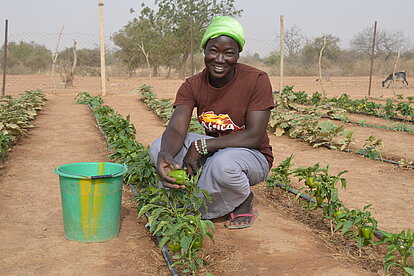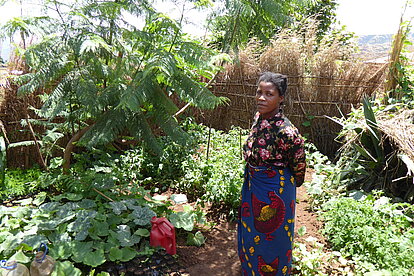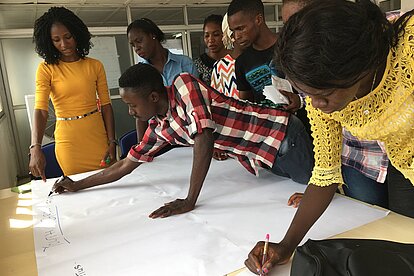Focus on the whole person
Promoting basic health care, improving living conditions

Especially in poor, rural and hard-to-reach regions, there is often no or only rudimentary medical care for the population. They lack health facilities, trained staff and medicines. The nearest hospitals are far away and many people cannot afford the necessary treatment. In addition, poor living conditions, lack of hygiene and poverty also affect health: Even today, the majority of all infant deaths are due to contaminated drinking water and poor hygiene.
DIFÄM promotes the development of basic health care in rural regions and a holistic improvement of the health situation in local communities. To ensure that all people have access to affordable basic health care, DIFÄM supports local partner organisations in setting up village outpatient clinics and training village health workers.
In the context of ASSET projects, for example in Malawi and Sierra Leone, the population is actively involved in setting up basic health care. Together, health problems are identified and measures such as the construction of village outpatient clinics are planned and implemented. The people and communities use their own strengths and resources (assets) to improve the health situation. Health care is thus provided where it is needed, and people learn to take responsibility for their own health.

Caring for the sick where there are no doctors
Village health workers are often the first and only source of health care in local communities and handle tasks that arise in rural health stations. Their focus is usually on mother-child health and infectious diseases. They provide education on hygiene and initially identify and treat common diseases such as diarrhoea locally in the villages.
Hospital treatment, which is costly and personnel-intensive, is only necessary when treatment in the community is no longer possible. Measures and training to improve living conditions, such as training in hygiene, healthy nutrition and organic farming, are carried out together with government experts.
The glass is half full
The concept of Primary Health Care
The World Health Organisation (WHO) has been calling for the concept of Primary Health Care for more than 40 years in order to improve global health in a sustainable way. As early as 1978, 123 independent countries adopted the concept of Primary Health Care at a conference in Alma Ata, Kazakhstan, thus defining for the first time the elements of basic health care and comprehensive health promotion. The concept no longer focused on the treatment of individual diseases, but on the whole person, his living conditions, his social and cultural needs and, above all, his co-determination and participation. DIFAEM, which actively helped to shape this approach, implements this concept within the framework of Primary Health Care.
ASSET stands for:
- Acknowledgement of existing resources and strengths of people at the grassroots level.
- Stimulation of responsibility by activating local resources
- Strengthening what is there
- Involving people in the process of sustainable promotion of their health
- Transfer of the concept to neighbouring communities and to the health system.






